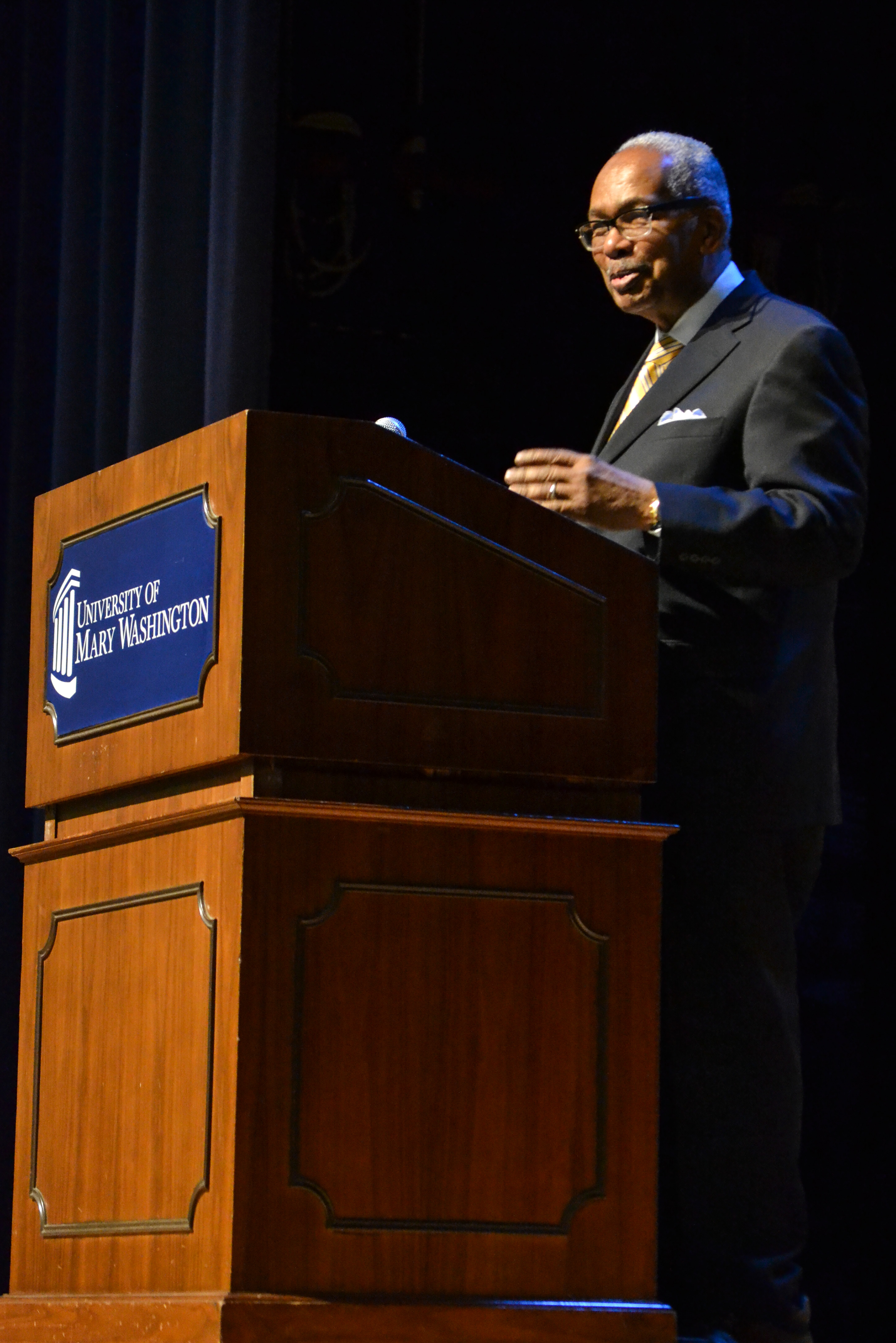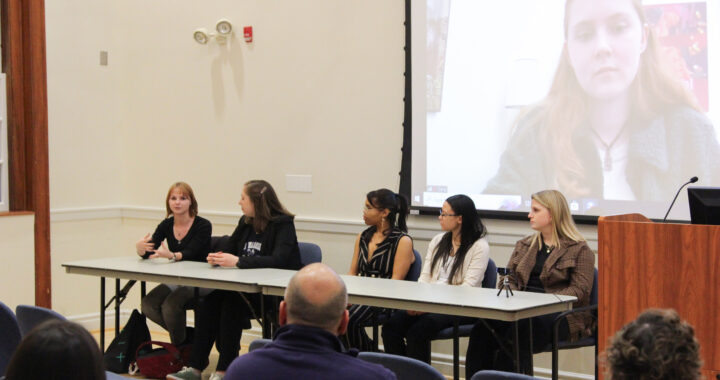Little Rock Nine member Ernest Green celebrates Martin Luther King, Jr. with students
3 min read
Ginny Clark/The Blue & Gray Press
BY NIKKI OESTREICHER
Little Rock Nine member Ernest Green joined students and faculty as he reminisced on a lifetime of civil rights activism during the University of Mary Washington’s 2015 Martin Luther King, Jr. Celebration on Wednesday, Jan. 21.
Green opened with a brief salute to late civil rights leader and UMW professor James Farmer, whom Green characterized as “an unsung hero” of the civil rights movement. Green revealed that he and Farmer were arrested together while protesting racial inequality at the 1964 World’s Fair in New York City.
The subject of Green’s speech revolved around the key characteristics of “an agent of change.” Citing Mahatma Gandhi, Martin Luther King, Jr., Malala Yousafzai and Thurgood Marshall, Green described an agent of change as, quite simply, “a singular individual with a dream of a better tomorrow.”
Green was quick to point out that not all agents of change become household names and that celebrity was not a part of the mission. He spoke of activists whose names and deeds never reached newspapers, received mention in history books or appeared in historical dramas, such as this year’s critically acclaimed civil rights film “Selma.”
“The mission was not to make history,” said Green. “The mission was to change the conditions of that time.”
Green was among nine African American students escorted by army troops to start classes at the newly integrated Little Rock Central High School in 1957. At 17 years old, Green was the first black student to graduate from LRCHS and was the youngest recipient of the NAACP’s Springarn Medal.
After graduating from Michigan State University, Green worked in employment law with a focus on securing jobs for minority women in the south. He later served as Assistant Secretary of Labor under President Jimmy Carter, and has since worked in corporate consulting. In 1999, President Bill Clinton awarded Green the Congressional Gold Medal, the highest honor that can be awarded to a civilian.
“When greater things are meant for you, no weapon can stop you,” said Green, alluding to Malala Yousafzai’s fight for women’s education in Pakistan that nearly cost her life.
After the address, students were able to ask Green questions.
“How was it possible to go through so many things and not lose your temper?” asked junior Roy King during the question and answer session.
“A lot of prayer, a lot of support, a lot of love,” Green replied.
Green also stressed the importance of patience and not giving up, no matter how big the obstacles may appear.
“Our family and friends never gave us the opportunity to forget that our mission was to go to school,” said Green.
As a teenager, Green once came across an older black man in his neighborhood who asked him why young people like himself felt the need to upset the white community and create problems for the black community.
“He should have asked, ‘why not,’” said Green. “Why not challenge conventional wisdom? Why not demonstrate that change is possible?”
According to Green, when an agent of change reframes questions of “why” into questions starting with “why not,” he or she finds that challenging the status quo seems a little less daunting.
“You’re not in this alone,” Green said to the students. “Form bonds with people from all walks of life. Take advantage of what’s in front of you, but don’t be afraid to look beyond.”
He encouraged everyone in the audience with a smart phone to share his words on Twitter, Facebook and Instagram, but also offered a word of caution, noting that while social media does play a role in enacting change, it can also lead to inaction.
Green counseled the audience to stand up against injustice, reminding his audience that retweeting “Hands Up, Don’t Shoot,” “I Can’t Breathe” and “Bring Back Our Girls” in tribute to Michael Brown, Eric Garner and the kidnapped girls in Nigeria, respectively, is not the same as taking action.
“Everything he talked about today really brought you back,” said senior anthropology major Jillian Talley, reflecting on the address. “He reminded us of the importance of really doing something.”












1 thought on “Little Rock Nine member Ernest Green celebrates Martin Luther King, Jr. with students”
Comments are closed.